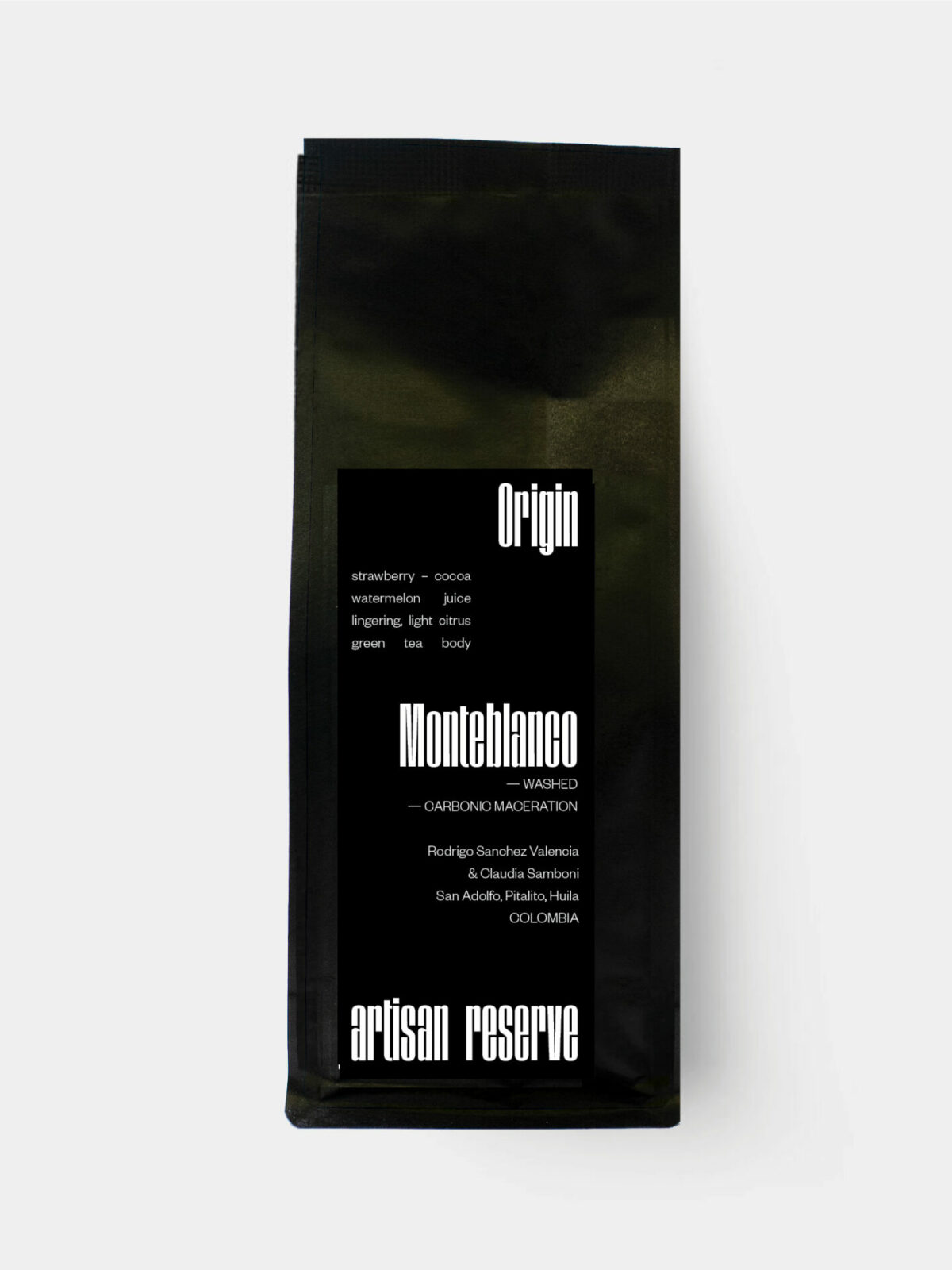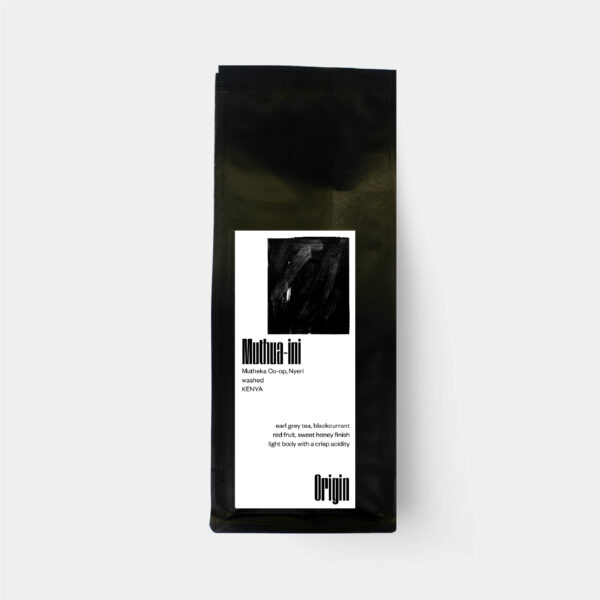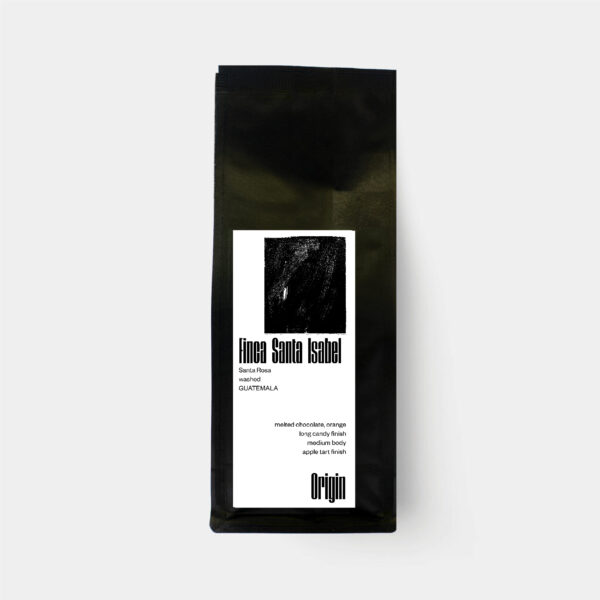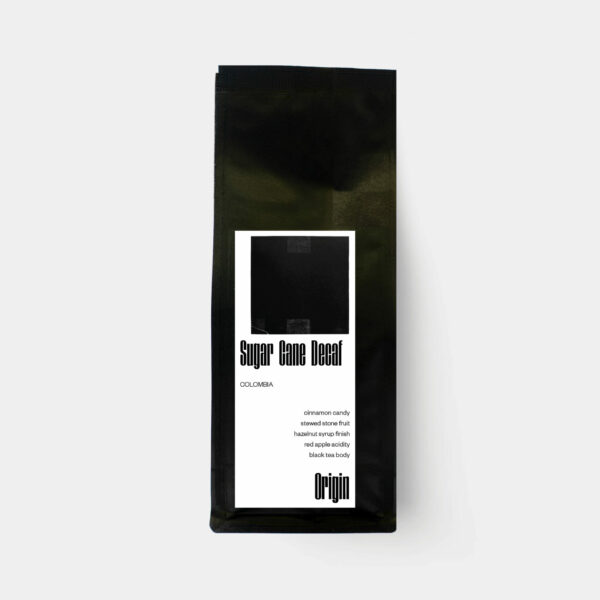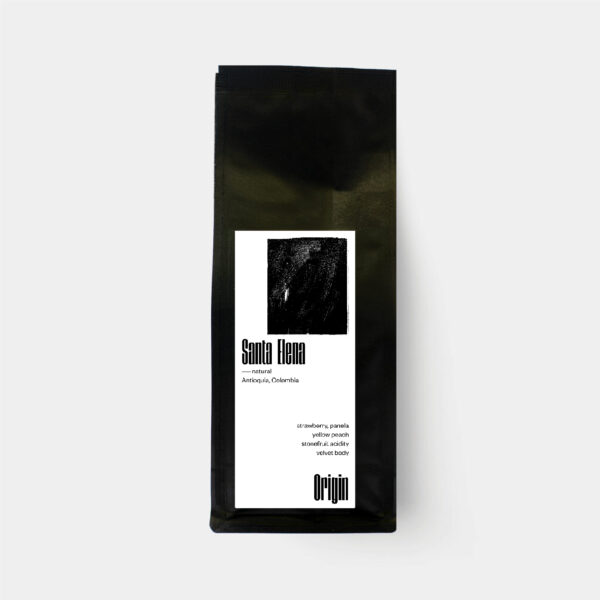Colombia Monteblanco Caturra-Bourbon Carbonic
strawberry – cocoa – watermelon juice – lingering, light citrus – green tea body
R279.00 – R1,005.00
Origin Pitalito, Huila
Flavours strawberry, cocoa, watermelon juice, floral, lingering, light citrus
Body green tea
Acidity citrus
Roast medium
Brewing pourover, siphon, Aeropress, plunger, espresso + milk-based
Owners Rodrigo Sanchez & Claudia Samboni
Altitude 1,730 masl
Varietals Caturra, Bourbon
Processing carbonic maceration, washed, sun dried
Our single origin coffees are all packed into 250g bags straight from the roaster. For optimal freshness, if you select 1kg of a single-origin coffee, it will be shipped as 4x250g bags.
Our blends and decaf are packed into both 250g and 1kg bags.
Colombia Monteblanco Caturra-Bourbon Carbonic
A Message from Rodrigo
Hi Joel. Good day, hope you’re well. This is Rodrigo Sanchez greeting you all the way from Pitalito, Huila in Colombia at Origin Coffee Roasters in Cape Town. It’s an honour for me to greet you my brother, thank you very much for choosing our coffees and having them often in your portfolio for your clients. A big hug, hoping you are enjoying a good cup of coffee from our Monteblanco farm.
And in his own words in Spanish…
Origin & Monteblanco
We have featured a number of Monteblanco lots from Rodrigo & Claudia Monteblanco over the years, including one of our all-time favourite coffees – their Purple Caturra Natural with its flavours of berry trifle, and of which one of Cape Town’s top chefs said “Wow. Is that even coffee?”.
This year in addition to this lot of Caturra-Bourbon carbonic maceration coffee, we have also featured the Pink Bourbon Thermal Shock.
The Producer
This lot of Caturra Bourbon is harvested and produced at Finca Monteblanco – a farm located on the very top of a mountain, in the San Adolfo municipality above Pitalito. The family farm is managed by Rodrigo Sanchez Valencia and his wife Claudia Samboni, following the coffee-growing tradition that began with his grandfather.
In the 14 hectares of Monteblanco farm, Rodrigo and his team have achieved several exotic varieties’ ideal growth and productivity. This is possible thanks to the farm’s environmental characteristics allowing Rodrigo to cultivate top-quality Gesha, Pink Bourbon, Pacamara, Purple Caturra, and Red Caturra, among others.
Each harvest, Finca Monteblanco produces micro-lots that serve as competition coffees around the world. Coffees from Monteblanco are milled and prepared for export at the new, state-of-the-art Aromas del Sur dry mill in Pitalito.
This Caturra Bourbon Carbonic Maceration Washed Process
With Rodrigo’s carbonic maceration method, the selected cherries should be at a starting point of minimum 90% maturation and an average Brix degree of 20-24.
After the coffee reaches the processing area, it is rafted (floated) in order to eliminate by density those dry beans, brocades, leaves, and voids that may affect the homogeneity of fermentation in addition to improving the physical quality of the coffee (yield factor).
After selection, the coffee is deposited in plastic bins to ferment in cherry for a period of 70 hours, with CO2 injected. During this period, the coffee bean undergoes changes in the colour of its mucilage that is transferred to the parchment, creating intense pink and dark tones, enhancing the sweetness and the body of the final drink, as well as intensifying the fruity notes of the coffee – these changes in the first stage of fermentation are more enzymatic.
The coffee is then pulped and deposited again in bins with its same juice (mussto) which is now rich in sugars, the source of fruit juice and micro-organisms are incorporated, enhancing fermentation. The bins are hermetically covered and injected with CO2 to start fermentation for another 70 to 94 hours. Thanks to the presence of these micro-organisms, the sugar chains of the mucilage metabolize, developing better fragrance and acidity attributes.
There would be a total of 140 to 188 hours of fermentation between cherries and mucilage. The beans are then washed and dried for a period of 18 to 22 days.
An Panel Discussion on Co-Fermented Coffees
Rodrigo is features in this panel. While not specific to the processing of this lot, it is a really interesting discussion around fermenting coffee with other fruits. Enjoy learning about how farmers continue to push the boundaries of what can be achieved with their coffees.
Monteblanco - owner Rodrigo Sanchez
Monteblanco - Vista 2a
Monteblanco - Rodrigo Sanchez and Claudia Samboni
Monteblanco - vista 2
Monteblanco - Ripe cherries and the coffee beans within
Colombia Monteblanco - Rodrigo & Claudia, Jose & Nicole
Colombia Monteblanco - coffee & bananas
Colombia Monteblanco - drying under canopies
Colombia Monteblanco - Rodrigo and Jose in the field
Monteblanco - naturals drying under shade
Monteblanco - Final drying under shade
Monteblanco - Location National
Monteblanco - Location Regional
Colombia Monteblanco Caturra-Bourbon CM
Colombia Monteblanco Caturra-Bourbon CM - back
Related products
-
Kenya Muthua-ini
R229.00 – R825.00 Buy Nowearl grey tea, blackcurrant
red fruit, sweet honey finish -
Guatemala Finca Santa Isabel
R169.00 – R610.00 Buy Nowblood orange – passionfruit – caramel – fig – soft, sweet, read apple acidity
-
Colombia Sugar Cane Decaf
R169.00 – R610.00 Buy Nowcinnamon candy – stewed stone fruit – hazelnut syrup finish – red apple acidity – black tea body
-
Colombia Santa Elena
R229.00 – R825.00 Buy Nowearl grey tea, blackcurrant
red fruit, sweet honey finish
